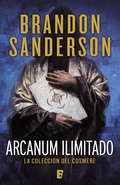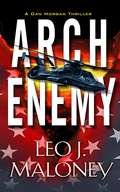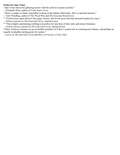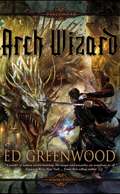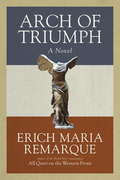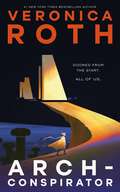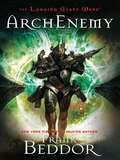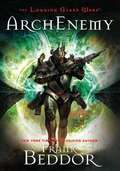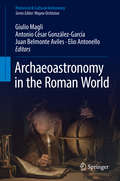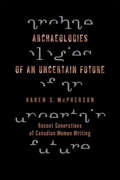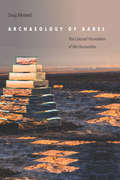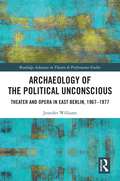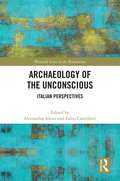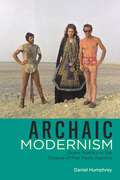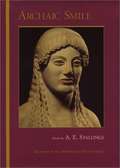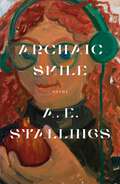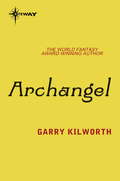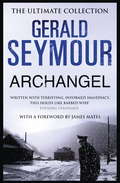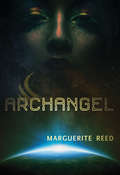- Table View
- List View
Arcanum ilimitado: La colección del Cosmere
by Brandon SandersonLa esperada antología de relatos y novelas cortas del Cosmere, el universo que Brandon Sanderson convertirá en la saga fantástica más extensa e impresionante jamás escrita. Brandon Sanderson crea mundos, y esos mundos están conectados. Su universo se expande por las sagas El Archivo de las Tormentas y Nacidos de la Bruma (Mistborn), también por obras como Elantris, construyendo una constelación de reinos llamado Cosmere. <P><P>Ahora este espectacular volumen recopila, por primera vez, nueve relatos y novelas cortas representativos de cada uno de esos mundos, con sus distintos sistemas de magia. La colección del Cosmere abarca los límites conocidos del universo de Sanderson -incluida una novela corta inédita de El Archivo de las Tormentas, Bailarina del Filo-, así como ilustraciones, notas... y secretos. Brandon Sanderson nos lleva a seis mundos a través de nueve fascinantes textos:* Sel (La esperanza de Elantris y El alma del emperador)* Scadrial (El undécimo metal, El alomántico Jak y los pozos de Eltania, capítulos 28 a 30, y Nacidos de la Bruma: Historia oculta)* Taldain (Arena blanca)* Threnody (Sombras para el silencio en los bosques del infierno)* Primero del Sol (Sexto del ocaso)* Roshar (Bailarina del Filo) Un viaje único por el cosmos de un autor mítico para sus más de nueve millones de lectores en todo el mundo.
Arcanum ilimitado: La colección del Cosmere
by Brandon SandersonLa esperada antología de relatos y novelas cortas del Cosmere, el universo que Brandon Sanderson convertirá en la saga fantástica más extensa e impresionante jamás escrita. Brandon Sanderson crea mundos, y esos mundos están conectados. Su universo se expande por las sagas El Archivo de las Tormentas y Nacidos de la Bruma (Mistborn), también por obras como Elantris, construyendo una constelación de reinos llamado Cosmere. Ahora este espectacular volumen recopila, por primera vez, nueve relatos y novelas cortas representativos de cada uno de esos mundos, con sus distintos sistemas de magia. La colección del Cosmere abarca los límites conocidos del universo de Sanderson -incluida una novela corta inédita de El Archivo de las Tormentas, Bailarina del Filo-, así como ilustraciones, notas... y secretos. Brandon Sanderson nos lleva a seis mundos a través de nueve fascinantes textos:* Sel (La esperanza de Elantris y El alma del emperador)* Scadrial (El undécimo metal, El alomántico Jak y los pozos de Eltania, capítulos 28 a 30, y Nacidos de la Bruma: Historia oculta)* Taldain (Arena blanca)* Threnody (Sombras para el silencio en los bosques del infierno)* Primero del Sol (Sexto del ocaso)* Roshar (Bailarina del Filo) Un viaje único por el cosmos de un autor mítico para sus más de nueve millones de lectores en todo el mundo. Reseñas:«Brandon Sanderson es una leyenda.»Alexelcapo, @EvilAFM «El Tolkien del siglo XXI.»El Mundo «Un escritor brillante.»Patrick Rothfuss «Es raro que un autor de ficción comprenda tan bien cómo funciona el liderazgo y cómo el amor echa raíces en el corazón humano. Sanderson es sorprendentemente sabio.»Orson Scott Card
Arch Enemy (A Dan Morgan Thriller #4)
by Leo J. MaloneyAn intelligence agent is on the hunt for a nefarious cyberterrorist in this “utterly compelling” spy thriller by the acclaimed author and Black Ops veteran (Jeffrey Deaver).The world is descending into chaos—and Dan Morgan of the elite intelligence unit Zeta Division knows the worst is yet to come. Mysterious government contractor Acevedo International is smuggling drugs and weapons across the globe. But as Morgan tracks down the nerve center of their illegal operations, an even more terrifying threat emerges—and Morgan's own daughter, Alex, is wrapped up in it.Drawn into an underground organization of college activists, Alex discovers that their true intentions are far more extreme and disturbing than she imagined. Behind it all is a ruthless hacker who has patiently laid plans to destroy America's global security networks. As the time to strike approaches, Morgan and Zeta Division may be the only chance not for victory, but survival . . .
Arch Of Bone
by Jane Yolen Ruth SandersonContinuing the story from where Moby Dick left off, this compelling boyhood adventure, penned by beloved author Jane Yolen (Owl Moon), hearkens to timeless coming of age tales of yore. Lovingly illustrated by Ruth Sanderson, the journey of a boy and his dog comes to life on the page, renewing the joy of a classic tale.
Arch Wizard (The Falconfar Saga, Book Two)
by Ed GreenwoodHaving been drawn into a fantasy world of his own creation, Rod Everlar continues his quest to defeat the corruption he has discovered within. He sets off in pursuit of the dark wizard Malraun, only to find that he has raised an army of monsters and mercenaries.
Arch of Triumph
by Erich Maria Remarque Denver Lindley Walter SorellThe evocative story of a man without a country, Arch of Triumph is a World War II-era classic from the author of All Quiet on the Western Front. It is 1939. Despite a law banning him from performing surgery, Ravic--a German doctor and refugee living in Paris--has been treating some of the city's most elite citizens for two years on the behalf of two less-than-skillful French physicians. Forbidden to return to his own country, and dodging the everyday dangers of jail and deportation, Ravic manages to hang on--all the while searching for the Nazi who tortured him back in Germany. And though he's given up on the possibility of love, life has a curious way of taking a turn for the romantic, even during the worst of times. "The world has a great writer in Erich Maria Remarque. He is a craftsman of unquestionably first rank, a man who can bend language to his will. Whether he writes of men or of inanimate nature, his touch is sensitive, firm, and sure."--The New York Times Book ReviewFrom the Trade Paperback edition.
Arch-Conspirator
by Veronica RothIn this gripping and atmospheric reimagining of Antigone, #1 New York Times bestselling author Veronica Roth reaches back to the root of legend and delivers a world of tomorrow both timeless and unexpected.“I’m cursed, haven’t you heard?”Outside the last city on Earth, the planet is a wasteland. Without the Archive, where the genes of the dead are stored, humanity will end.Antigone’s parents—Oedipus and Jocasta—are dead. Passing into the Archive should be cause for celebration, but with her militant uncle Kreon rising to claim her father's vacant throne, all Antigone feels is rage.When he welcomes her and her siblings into his mansion, Antigone sees it for what it really is: a gilded cage, where she is a captive as well as a guest.But her uncle will soon learn that no cage is unbreakable. And neither is he.“Roth is a masterful conjurer, summoning both classic myth and visceral dystopia to weave a breathtaking tale of love, avarice, and the timeless desire for revenge.” — Ryka Aoki, bestselling author of Light From Uncommon StarsAt the Publisher's request, this title is being sold without Digital Rights Management Software (DRM) applied.
ArchEnemy
by Frank BeddorThe Heart CrystalÕs power has been depleted, and Imagination along with it. The people of Wonderland have all lost their creative drive, and most alarmingly, even Queen Alyss is without her powers. But at least the vicious Redd Heart seems to be similarly disabled. Amazingly, she is attempting to team up with her enemy, Alyss, in order to reclaim Wonderland from King Arch. Alyss might have no choice but to accept ReddÕs overtures, especially when she begins to receive alarming advice from the caterpillar oracles. . . .
ArchEnemy (The Looking Glass Wars #3)
by Frank BeddorDiscover the fate of Wonderland -- and imagination itself -- in this riveting conclusion to "The Looking Glass Wars" trilogy. The Heart Crystal's power has been depleted, and Imagination along with it. The people of Wonderland have all lost their creative drive, and most alarmingly, even Queen Alyss is without her powers. There is some comfort in the fact that the vicious Redd Heart seems to be similarly disabled. Amazingly, she is attempting to team up with her enemy, Alyss, in order to reclaim Wonderland from King Arch. Alyss might have no choice but to accept Redd's overtures, especially when she begins to receive alarming advice from the caterpillar oracles.
Archaeoastronomy in the Roman World (Historical & Cultural Astronomy)
by Giulio Magli Antonio César González-García Juan Belmonte Aviles Elio AntonelloThis book explores the insights that Cultural Astronomy provides into the classical Roman world by unveiling the ways in which the Romans made use of their knowledge concerning the heavens, and by shedding new light on the interactions between astronomy and heritage in ancient Roman culture. Leading experts in the field present fascinating information on how and why the Romans referred to the sky when deciding upon the orientation of particular monuments, temples, tombs and even urban layouts. Attention is also devoted to questions of broader interest, such as the contribution that religious interpretation of the sky made in the assimilation of conquered peoples.When one considers astronomy in the Roman world it is customary to think of the work and models of Ptolemy, and perhaps the Julian calendar or even the sighting of the Star of Bethlehem. However, like many other peoples in antiquity, the Romans interacted with the heavens in deeper ways that exerted a profound influence on their culture. This book highlights the need to take this complexity into account in various areas of research and will appeal to all those who wish to learn more about the application of astronomy in the lives and architecture of the Romans.
Archaeologies of an Uncertain Future
by Karen McphersonIn Archaeologies of an Uncertain Future, McPherson explores the memory work, alternative historiographies, and feminist aesthetics by which women writers revisit the past and reimagine the future. Grounded within critical discourses across many discplines, McPherson's analysis engages contemporary discussions about autobiographical genres, post-modern historiographies, memoirs, and literary genealogies.
Archaeologies of an Uncertain Future: Recent Generations of Canadian Women Writing
by Karen McPhersonIn Archaeologies of an Uncertain Future, McPherson explores the memory work, alternative historiographies, and feminist aesthetics by which women writers revisit the past and reimagine the future. Grounded within critical discourses across many discplines, McPherson's analysis engages contemporary discussions about autobiographical genres, post-modern historiographies, memoirs, and literary genealogies.
Archaeology of Babel: The Colonial Foundation of the Humanities
by Siraj AhmedFor more than three decades, preeminent scholars in comparative literature and postcolonial studies have called for a return to philology as the indispensable basis of critical method in the humanities. Against such calls, this book argues that the privilege philology has always enjoyed within the modern humanities silently reinforces a colonial hierarchy. In fact, each of philology's foundational innovations originally served British rule in India. Tracing an unacknowledged history that extends from British Orientalist Sir William Jones to Palestinian American intellectual Edward Said and beyond, Archaeology of Babel excavates the epistemic transformation that was engendered on a global scale by the colonial reconstruction of native languages, literatures, and law. In the process, it reveals the extent to which even postcolonial studies and European philosophy—not to mention discourses as disparate as Islamic fundamentalism, Hindu nationalism, and global environmentalism—are the progeny of colonial rule. Going further, it unearths the alternate concepts of language and literature that were lost along the way and issues its own call for humanists to reckon with the politics of the philological practices to which they now return.
Archaeology of the Political Unconscious: Theater and Opera in East Berlin, 1967–1977 (ISSN)
by Jennifer WilliamsThis book investigates the aesthetic and political dialectics of East Berlin to argue how its theater and opera stages incited artists to act out, fuel, and resist the troubled construction of political legitimacy.This volume investigates three case studies of how leading East Berlin stages excavated fragmentary materials from Weimar dramatist Bertolt Brecht’s oeuvre and repurposed them for their post‑fascist society: Uta Birnbaum’s 1967 Man Equals Man at the Berliner Ensemble, Joachim Herz’s 1977 Rise and Fall of the City of Mahagonny at the Komische Oper, and Heiner Muller’s own productions of his trailblazing plays. In each instance, reused theatrical artifacts dialectically expressed the contradictions inherent in East German political legitimacy, at once amplifying and critiquing it. Illuminated by original archival research and translations of letters and artistic ephemera published in English for the first time, and engaging with alternative East German feminist epistemologies, this book’s critical investigation of culture and political legitimacy in the shadow of Germany’s fascist past resonates beyond the Iron Curtain into the twenty‑first century. Its final chapter examines how performative artifacts influence the process of political legitimation in more recent history, ranging from Checkpoint Charlie tourism to the January 6, 2021 US insurrection.This study will be of great interest to students and scholars in theater and performance studies, art history, musicology, German studies, anthropology, and political science.
Archaeology of the Unconscious: Italian Perspectives (Warwick Series in the Humanities)
by Alessandra Aloisi Fabio CamillettiIn reconstructing the birth and development of the notion of ‘unconscious’, historians of ideas have heavily relied on the Freudian concept of Unbewussten, retroactively projecting the psychoanalytic unconscious over a constellation of diverse cultural experiences taking place in the eighteenth and nineteenth centuries between France and Germany. Archaeology of the Unconscious aims to challenge this perspective by adopting an unusual and thought-provoking viewpoint as the one offered by the Italian case from the 1770s to the immediate aftermath of WWI, when Italo Svevo’s La coscienza di Zeno provides Italy with the first example of a ‘psychoanalytic novel’. Italy’s vibrant culture of the long nineteenth century, characterised by the sedimentation, circulation, intersection, and synergy of different cultural, philosophical, and literary traditions, proves itself to be a privileged object of inquiry for an archaeological study of the unconscious; a study whose object is not the alleged ‘origin’ of a pre-made theoretical construct, but rather the stratifications by which that specific construct was assembled. In line with Michel Foucault’s Archéologie du savoir (1969), this volume will analyze the formation and the circulation, across different authors and texts, of a network of ideas and discourses on interconnected themes, including dreams, memory, recollection, desire, imagination, fantasy, madness, creativity, inspiration, magnetism, and somnambulism. Alongside questioning pre-given narratives of the ‘history of the unconscious’, this book will employ the Italian ‘difference’ as a powerful perspective from whence to address the undeveloped potentialities of the pre-Freudian unconscious, beyond uniquely psychoanalytical viewpoints.
Archaic Modernism: Queer Poetics in the Cinema of Pier Paolo Pasolini (Queer Screens)
by Daniel HumphreyIn Archaic Modernism, Daniel Humphrey offers the first book-length, English-language examination of three adaptations of Greek tragedy produced by the gay and Marxist Italian filmmaker Pier Paolo Pasolini: Oedipus Rex (1967), Medea (1969), and Notes Towards an African Orestes (1970/1973). Considering Pasolini’s own theories of a "Cinema of Poetry" alongside Jacques Derrida’s concept of écriture, as well as more recent scholarship by queer theory scholars advocating for an antirelational and antisocial subjectivity, Humphrey maintains that Pasolini’s Greek tragedy films exemplify a paradoxical sense of "archaic modernism" that is at the very heart of the filmmaker’s project. More daringly, he contends that they ultimately reveal the queer roots of Western civilization’s formative texts. Archaic Modernism is comprised of three chapters. Chapter 1 focuses on Oedipus Rex, assessing both the filmic language employed and the deeply queer mythological source material that haunts the tragedy even as it remains largely at a subtextual yet palpable level. Chapter 2 extends and deepens the concept of queer fate and queer negativity in a scene-by-scene analysis of Medea. Chapter 3 looks at the most obscure of Pasolini’s feature length films, Notes Towards an African Orestes, a film long misunderstood as an unwitting failure, but which could perhaps best be understood as a deliberate, sacrificial act on the filmmaker’s part. Considering the film as the third in an informal, maybe unconscious, trilogy, Humphrey concludes his monograph by arguing that this "trilogy of myth" can best be understood as a deconstruction, gradually more and more severe, of three of the most important origin tales of Western civilization. Archaic Modernism makes the case that these three films are as essential as those Pasolini films more often studied in the Anglophone world: Mamma Roma, The Gospel According to Matthew, Teorema, The Trilogy of Life, and Salò, and that they are of continuing, perhaps even increasing, value today. This book is of specific interest to scholars, students, and researchers of film and queer studies.
Archaic Smile: Poems
by A. E. StallingsArchaic Smile, by A.E. Stallings, recipient of the 1999 Richard Wilbur Award, uniquely juxtaposes poetic meditations on mythological themes with poems about the everyday occurances of contemporary life -- such as losing an umbrella or fishing with one's father.
Archaic Smile: Poems
by A. E. StallingsA new edition of A. E. Stallings's first book of poems, which was awarded the Richard Wilbur Award. In Archaic Smile, by the Pulitzer Prize and National Book Critics Circle Award finalist A. E. Stallings, the poet couples poetic meditations on classic stories and themes with poems about the everyday, sometimes mundane occurrences of contemporary life (like losing an umbrella or fishing with one’s father), and she infuses the latter with the magic of myth and history. With the skill of a scholar and translator and the playful, pristine composition of a poet, Stallings bridges the gap between these two distant worlds.Stallings “invigorates the old forms and makes them sing” (Meryl Natchez, ZYZZYVA) in her poetry, and the scope and origins of her talents are on full display in the acclaimed author's first collection. The poems of Archaic Smile are sung with a timeless, technically impeccable, and utterly true voice.
Archaic Style in English Literature, 1590-1674
by Lucy MunroRanging from the works of Shakespeare, Spenser, Jonson and Milton to those of Robert Southwell and Anna Trapnel, this groundbreaking study explores the conscious use of archaic style by the poets and dramatists between 1590 and 1674. It focuses on the wide-ranging, complex and self-conscious uses of archaic linguistic and poetic style, analysing the uses to which writers put literary style in order to re-embody and reshape the past. Munro brings together scholarly conversations on temporality, memory and historiography, on the relationships between medieval and early modern literary cultures, on the workings of dramatic and poetic style, and on national history and identity. Neither pure anachronism nor pure nostalgia, the attempts of writers to reconstruct outmoded styles within their own works reveal a largely untold story about the workings of literary influence and tradition, the interactions between past and present, and the uncertain contours of English nationhood.
Archangel
by Garry KilworthIn 1997 an angel fell to Earth. Dave Peters, and his sidekick in the San Francisco police squad, Danny, were right there at the time. Caught up in a supernatural war between good and evil, they had eventually tracked down the rogue entity and brought an end to its reign of deadly fire. But now the stakes had risen. It's 2002, and there's a demon abroad in London, a soul so corrupt and foul that Satan himself has recruited him from the legions of the dead. Only one entity in Heaven can counter his power - an Archangel, an angel of the highest rank.
Archangel
by Garry KilworthIn 1997 an angel fell to Earth. Dave Peters, and his sidekick in the San Francisco police squad, Danny, were right there at the time. Caught up in a supernatural war between good and evil, they had eventually tracked down the rogue entity and brought an end to its reign of deadly fire. But now the stakes had risen. It's 2002, and there's a demon abroad in London, a soul so corrupt and foul that Satan himself has recruited him from the legions of the dead. Only one entity in Heaven can counter his power - an Archangel, an angel of the highest rank.
Archangel
by Gerald SeymourWhen British Intelligence asks Michael Holly, a mechanical engineer, to run an errand for them in the Soviet Union, the consequences of capture are never mentioned. But what seems a simple handover carries unimaginable risks, and now Holly is facing fifteen years imprisoned in a gulag in the midst of the frozen tundra. Along with his fellow inmates, Holly has to find the strength to fight the camp's brutal regime in any way he can. But Camp 3 is the place where hopes and dreams are brought to die. Against the might of the Soviet state, is Michael Holly strong enough to sustain his will to survive?
Archangel
by Gerald SeymourFrom the author of Harry's Game - A Sunday Times '100 best crime novels and thrillers since 1945' pickWhen British Intelligence asks Michael Holly, a mechanical engineer, to run an errand for them in the Soviet Union, the consequences of capture are never mentioned. But what seems a simple handover carries unimaginable risks, and now Holly is facing fifteen years imprisoned in a gulag in the midst of the frozen tundra. Along with his fellow inmates, Holly has to find the strength to fight the camp's brutal regime in any way he can. But Camp 3 is the place where hopes and dreams are brought to die. Against the might of the Soviet state, is Michael Holly strong enough to sustain his will to survive?
Archangel
by Marguerite ReedThe Earth is dying, and our hopes are pinned on Ubastis, an untamed paradise at the edge of colonized space. But such an influx of people threatens the planet's unstudied ecosystem -- a tenuous research colony must complete its analysis, lest humanity abandon one planet only to die on another. The Ubasti colonists barely get by on their own. To acquire the tools they need, they are relegated to selling whatever they can to outside investors. For xenobiologist Vashti Loren, this means bringing Offworlders on safari to hunt the specimens she and her fellow biologists so desperately need to study. Haunted by the violent death of her husband, the heroic and celebrated Lasse Undset, Vashti must balance the needs of Ubastis against the swelling crush of settlers. Vashti struggles in her role as one of the few colonists licensed to carry deadly weapons, just as she struggles with her history of using them. And when she discovers a genetically engineered soldier smuggled onto the surface, Vashti must face the nightmare of her husband's murder all over again. Standing at the threshold of humanity's greatest hope, she alone understands the darkness of guarding paradise.
Archangel
by Mike ConnerFrom the book jacket: Archangel is set in an alternate universe Minneapolis, in the late 1920s, after a decade of devastating plague. Hun, a blood disease that appeared during World War I, ended the war and is killing more people every year. Like other great cities, Minneapolis is a shadow of its former self, isolated by the breakdown of civilization. Whites are dying while blacks are immune and trying to forge a new social compact in a radically changed society. And a mysterious woman calling herself "the Archangel" broadcasts the music of the jazz age-and the real, uncensored news-from a pirate radio station. Danny Constantine, a young newspaperman, discovers a weird series of murders that look like the work of a vampire. But in a world of bad news, even his own paper doesn't care to print his discovery. Danny has been alone in the world since his wife died of Hun, and his investigation becomes his personal crusade, involving him with an embittered black police officer, a doctor seeking a cure for the disease, and the social forces contending for power in the crumbling city- and finally, with the Archangel. Michael Conner has been building a reputation as one of the most talented younger writers in science fiction. His recent story, "Guide Dog," won the 1993 Nebula Award. Now Conner has written Archangel, his most powerful and intriguing work yet.
